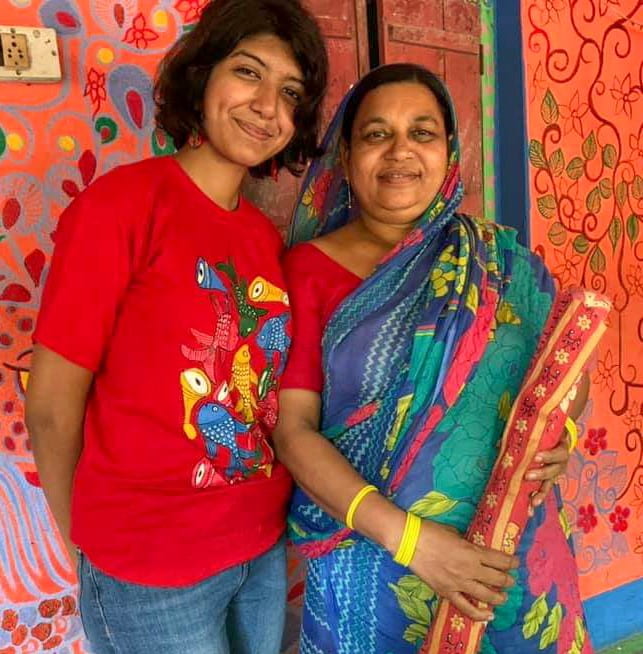UKAPTB meeting: Strengthening partnerships across the UK to end TB
By rekgngs, on 19 February 2024
 UK Academics and Professionals to End TB (UKAPTB) are a grassroots network of healthcare professionals and researchers interested in working together to push for changes in policy and funding that will bolster efforts to eliminate TB.
UK Academics and Professionals to End TB (UKAPTB) are a grassroots network of healthcare professionals and researchers interested in working together to push for changes in policy and funding that will bolster efforts to eliminate TB.
We held our first in-person meeting on Friday 26th January 2024 hosted by the Centre for Tuberculosis Research at the Liverpool School of Tropical Medicine bringing together people working in a variety of contexts with representation from NHS England, the UK Health Security Agency (UKHSA), local public health, affected communities, civil society, parliamentarians, university-based researchers, health workers and funders.
The meeting was held at Spaces at The Spine, a building with a distinctive façade a symbolic reference to nature, located in Liverpool’s Knowledge Quarter just a short walk from the national train station. We were blessed with a crisp bright morning providing phenomenal views over the city from the 13th floor – a wonderful space to catch up with old friends and meet new faces.
 The day was split into three main points of discussion: strengthening partnerships to accelerate the UK’s efforts to end TB; how to get back on track towards eliminating TB in the UK and; how do we ensure TB is on the antimicrobial resistance agenda in the United Nations High-Level Meeting this year. The day was designed to facilitate discussion through short presentations, panel discussions which later opened for audience interventions and plenty of time and space for conversations to continue over coffee and Scouse stew.
The day was split into three main points of discussion: strengthening partnerships to accelerate the UK’s efforts to end TB; how to get back on track towards eliminating TB in the UK and; how do we ensure TB is on the antimicrobial resistance agenda in the United Nations High-Level Meeting this year. The day was designed to facilitate discussion through short presentations, panel discussions which later opened for audience interventions and plenty of time and space for conversations to continue over coffee and Scouse stew.
“despite the UK being a leader in TB research, we do not implement in the UK all the innovations we have contributed evidence for“
Some of the key messages that came out of the day were about building strong, equitable partnerships – be that in UK research collaborations with the Global South and explicit practices of decentring colonial power which came out in the session showcasing TB research around the UK, or partnerships with affected communities, policy makers, civil society, academics and healthcare workers. However, it was noted that despite the UK being a leader in TB research, we do not implement in the UK all the innovations we have contributed evidence for: Video Observed Therapy is not accessible across the country, rifapentine-isoniazid fixed dose combination is not routinely accessible and people with multi-drug resistant TB struggle to access the latest shorter all-oral regimens due to difficulties procuring key medicines.

Other challenges experienced by healthcare workers in the UK included structural conditions that both challenged people with TB and the services designed to care for them. Most people diagnosed with TB in the UK were originally born in high burden TB countries. The government’s hostile environment policy agenda makes TB prevention, care and surveillance incredibly difficult for some of the people most at-risk of TB. In addition, the cost-of-living crisis negatively impacts the social determinants of TB including access to good quality housing, nutrition and employment. TB teams must address these complex issues if they are to successfully support people through diagnosis and treatment completion. This takes huge resource which is frequently not provided by budget holders as they grapple different priorities and an NHS in crisis.
“We need to embed TB prevention and care into other relevant agendas”
As countries move towards TB elimination, the need to move away from single disease policies and vertical funding will become ever more pressing. Health system strengthening is therefore key to building resilience into end TB strategies. In the UK one example of ensuring access to specialist advice for complex patients in a low incidence setting was to set up through a virtual multidisciplinary team meeting with an experienced clinician. Getting TB on the agenda has long been an issue in terms of funding. Academics and healthcare professionals have a credible and powerful voice but banging the TB drum and publication of peer reviewed journal articles are often not the best way to make ourselves heard. We need to embed TB prevention and care into other relevant agendas including for example, universal health coverage, pandemic prevention, preparedness and response, anti-microbial resistance, the climate emergency. Finally, we must be less squeamish at engaging politicians and policymakers to do this.
“there was a buzz of energy that lasted throughout the day”
There are no short-cuts for this kind of advocacy work – relationships take hard graft and personal connections and must be an exchange of information and not a one-way street. Policymakers need to be able to reach out to the right people and be given information in ways that are understandable, relevant and timely and we need to support that. Building partnerships, strengthening our networks and producing fruitful collaborations to end TB was the aim of the day. There are multiple groups working on TB who are UK-based – whether their work is targeted across the four nations or globally – each with their own agendas and skill set. The aim of this event was to join things up; showcase and share the variety of work streams in action; connecting disciplines and geographies to generate new ways of seeing and doing. Despite the early start for many, and a vast amount of information-sharing, there was a buzz of energy that lasted throughout the day and into our journeys home. We need to keep building this momentum through the upcoming World TB Day and beyond – only together will we succeed in creating a TB-free world.
UKAPTB: https://www.ukaptb.org
UKAPTB news: https://www.ukaptb.org/news-and-events
Contact UKAPTB: ukaptb@gmail.com
Jess is lead of the TB service at North Middlesex University Hospital in London. She is co-chair of the UKAPTB and advocacy lead for the European network TBnet. Jess is a qualitative researcher interested in access to health care and the structural conditions that shape these experiences. jessica.potter3@nhs.net
Images courtesy of KC (view of Liverpool) and Alejandra Cardona-Mayorga, Liverpool School of Tropical Medicine (UKAPTB meeting session)
 Close
Close



